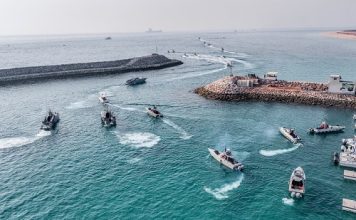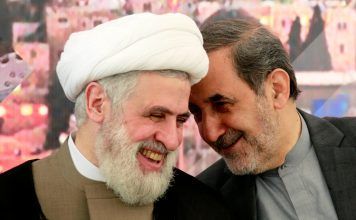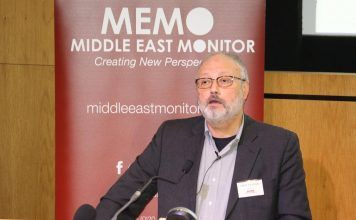By Raya Jalabi and Lisa Barrington
DUBAI, March 26 (Reuters) – Yemen’s Iran-aligned Houthis said on Friday they had launched 18 armed drones on Saudi energy and military sites, and the kingdom’s energy ministry reported that a projectile had struck a petroleum products distribution station, causing a fire.
The Saudi-led coalition battling the Houthi group said late on Thursday it had intercepted several drones aimed at Saudi Arabia, days after Riyadh presented a peace initiative that includes a nationwide ceasefire in Yemen as the war enters its seventh year.
Houthi military spokesman Yahya Sarea said the group had targeted facilities of state oil giant Saudi Aramco in Ras al-Tanura, Rabigh, Yanbu and Jazan. He said they also targeted King Abdelaziz military base in Dammam and military sites in Najran and Asir.
“We are prepared to carry out stronger and harsher military attacks in the coming period,” he said on Twitter.
Aramco, when contacted by Reuters on Friday, said it would respond at the earliest opportunity.
The Saudi energy ministry said that at 9 p.m. on Thursday a projectile had struck a petroleum products distribution station in Jazan that caused a fire in a tank. There were no casualties.
It said such attacks on vital installations target the stability of global energy supplies.
The Saudi defence ministry said on Friday the kingdom would take deterrent actions to protect oil exports.
“These attacks confirm the terrorist Houthi militia’s rejection of all political efforts to end the crisis,” defence ministry spokesman Colonel Turki al-Malki, who also speaks for the Saudi-led coalition, said in a statement.
The Houthis, who are pushing for the full lifting of a sea and air blockade on areas the group controls, recently stepped up drone and missile attacks on Saudi Arabia and a ground offensive to seize Yemen’s gas-rich Marib region.
Saudi-Led Coalition Clears Four Fuel Ships to Dock at Yemen’s Hodeidah Port -Sources
The coalition has responded with air strikes on Houthi military sites.
The Saudi-led coalition intervened in Yemen in March 2015 after the Houthis ousted the internationally recognised government in the capital Sanaa.
The Houthis, who now control most of northern Yemen, deny being puppets of Iran and say they are fighting a corrupt system and foreign aggression.
(Reporting by Alaa Swilam in Cairo, Lisa Barrington and Maher Chmaytelli in Dubai; Writing by Raya Jalabi and Ghaida Ghantous; Editing by Gareth Jones)







